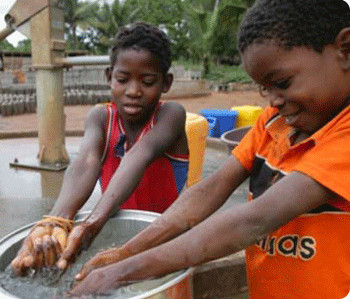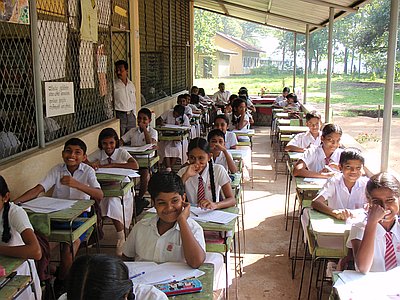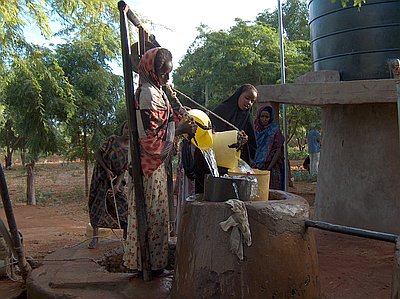Child-friendly schools

The Child Friendly Schools (CFS) Manual underscores the notion that to be truly child-friendly a school must have:
- Accessible, gender-appropriate toilets and hand-washing facilities
- Access to potable drinking water
- Solid waste management with proper boundaries
- The school must also teach children appropriate hygiene practices.
This module explores various options for effectively implementing a WASH in Schools programme. A dynamic engagement of CFS principles to evaluate their feasibility and applicability in the country context will determine appropriate options for each school. Considering available resources, physical conditions, existing capacity and opportunities for change will yield a variety of solutions.
In essence, WASH in Schools is a pathway to healthier schools and healthier, better performing children. Key CFS principles and desired features should be used as guides for interventions, stimulating discussion and creativity for the development of sustainable WASH in Schools programmes. These programmes must then be adapted to the practical realities of the school and its surrounding community.
Fiedl experiences
| Akvo RSR Project: Facilities Ibbagamuwa school Sri Lanka
Ibbagamuwa Central College in the North Western Province rural school with 1040 children grade 6, 7, 8 and 32 teachers will make use of the new facilities. These children come from poor families and don't live in the neighborhood. Daily many children must travel to and from school for 6 hours. Water is life, blood of the earth! |
| Akvo RSR Project: Safe water for Wajir
WASH promotion in Makaror a suburb of Wajir Town through technical education and demonstration of WASH. Wajir is constructed on top of an ancient aquifer. Wajir has 130.000 inhabitants by 2013 and has a growth rate of 10 percent per year. Most wells have ecoli pollution. Lining wells helps. Closure and pump installation is better. Combination with Ecosan is an adequate solution. |
Manuals, videos and links
- WASH in Schools - Water, sanitation and hygiene education in schools, WASH-in-Schools – is a program which provides safe drinking water, improves sanitation facilities and promotes good health outcomes. We have the pleasure to inform you that the Global Partnership for Water, Sanitation and Hygiene in Schools (WASH-in-Schools) is now a reality, supporting the common vision of a world where all children go to school and all schools provide a safe, healthy and comfortable environment where children grow, learn and thrive.


